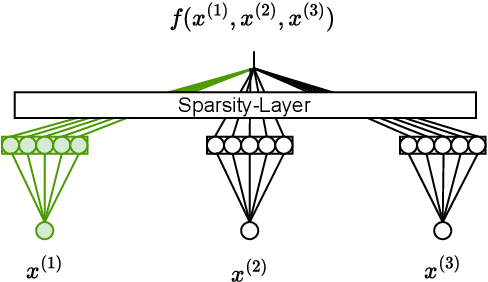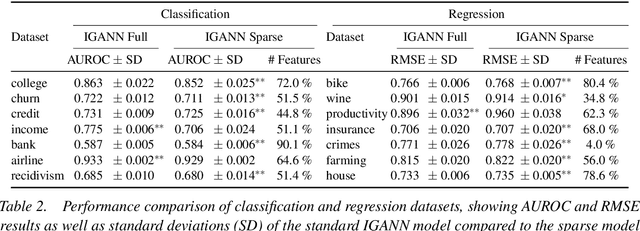IGANN Sparse: Bridging Sparsity and Interpretability with Non-linear Insight
Paper and Code
Mar 17, 2024



Feature selection is a critical component in predictive analytics that significantly affects the prediction accuracy and interpretability of models. Intrinsic methods for feature selection are built directly into model learning, providing a fast and attractive option for large amounts of data. Machine learning algorithms, such as penalized regression models (e.g., lasso) are the most common choice when it comes to in-built feature selection. However, they fail to capture non-linear relationships, which ultimately affects their ability to predict outcomes in intricate datasets. In this paper, we propose IGANN Sparse, a novel machine learning model from the family of generalized additive models, which promotes sparsity through a non-linear feature selection process during training. This ensures interpretability through improved model sparsity without sacrificing predictive performance. Moreover, IGANN Sparse serves as an exploratory tool for information systems researchers to unveil important non-linear relationships in domains that are characterized by complex patterns. Our ongoing research is directed at a thorough evaluation of the IGANN Sparse model, including user studies that allow to assess how well users of the model can benefit from the reduced number of features. This will allow for a deeper understanding of the interactions between linear vs. non-linear modeling, number of selected features, and predictive performance.
 Add to Chrome
Add to Chrome Add to Firefox
Add to Firefox Add to Edge
Add to Edge